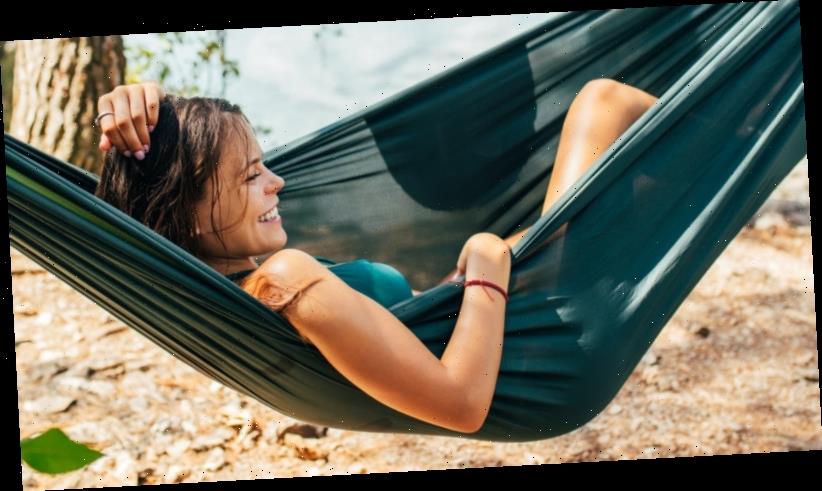Sally was in her late 30s when she went on her first health retreat. She ran her own events management company, juggling work with the needs of her three young children, and while Sally was looking forward to a break, she underestimated the impact the trip would have. “It was life-changing,” she recalls.
Sally was blown away by how it felt to surrender to self-care. For the first time ever, she spent a week not having to make decisions about anything other than whether she would like to take a long walk or indulge in a massage. “It was quite extraordinary,” she says.
“Spend time without your phone and instead go for walks in nature and think about what needs more focus in your life.”Credit:Stocksy
That was 17 years ago. Since then, Sally, now 56, has attended a number of similar places and now visits her preferred jaunt, Gwinganna Lifestyle Retreat in Queensland, once a year.
“The best thing about it is that it’s a complete circuit-breaker from the stresses of life,” Sally says. “Because we’re all so busy, so stressed, so pulled in different directions. We’re trying to be a good mum, partner, worker; we make very little time for ourselves.”
The wellness tourism industry is booming. According to the Global Wellness Institute, it rocketed from a $US563 billion industry in 2015 to one worth $US639 billion just two years later. And nothing bridges the wellness and tourism industries quite so neatly as a health retreat.
Such retreats have many obvious physical benefits: just picture all that nourishing food, the long nature walks and uninterrupted sleep. But they’re also oozing with mental-health benefits, says Lana Hall, principal psychologist and owner of Sage & Sound psychology practice.
Hall says there are five basic building blocks for good mental health: a high-quality sleep routine; a diet based on unprocessed foods; regular movement; social connections; and engaging in a hobby. The sixth “bonus” block is a mindfulness or meditation practice.
Hall says that health retreats tick most, if not all, of those boxes. “The chance to achieve balance while taking time out to reassess what’s really important to you in life, as well as incorporating the basic building blocks of good mental health, are what make retreats so valuable.”
And the gains don’t end when you wave goodbye to your time away. Research published in BMC Complementary and Alternative Medicine in 2018 examined 23 studies; all reported post-retreat health benefits, some of which lasted for up to five years. The study concluded that such experiences also appeared to have health benefits for people with chronic diseases, though more research was needed.
To ensure you keep reaping the rewards, Hall recommends adding commitments such as exercise and meditation in your calendar – and sticking to them. “In that way, you can grab the retreat’s benefits, and the flow-on benefits … without needing to access the retreat itself.”
Health retreats can be prohibitively expensive: Sally pays up to $5000 for each week-long stay. But you don’t need to visit a retreat to adopt its principles. Hall advises taking a day, or weekend, to look at your life and explore where it’s unbalanced while keeping those basic building blocks in mind.
“Spend time without your phone and instead go for walks in nature and think about what needs more focus in your life,” she suggests. “If you can, pre-buy healthy meals, chat to friends who do relaxation well, and attend a new class or workshop so you’re touching on as many elements of
the retreat experience as possible.”
That said, if you can afford it, Sally swears that health retreats are worth every cent. “It’s not like a normal holiday, where you have a lovely break from the rigours of life but within two days of being home, you go, ‘It’s groundhog day again.’ ”
Instead, she says, she comes home from a retreat with a lasting sense of rejuvenation, vitality and clarity of mind. “It’s like suddenly a fog lifts.”
This article appears in Sunday Life magazine within the Sun-Herald and the Sunday Age on sale March 1.
Source: Read Full Article

